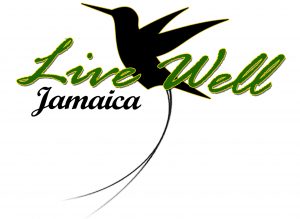As Jamaicans, we strive to achieve all things bright and beautiful. Our lifestyle is one that reflects livity and freedom; that is brand Jamaica. However, what has been severely affecting our liberating culture in recent times, is the stereotypical treatment of our men, ultimately enhancing an anti-climatic nature of not seeking help — therapy, in particular. This phenomenon has been a constant discourse as it continues to haunt men in our society from one generation to the next. In our daily activities, it is evident that a significant number of males in our society who face life-threatening experiences are more likely to cover up their emotions and repress their feelings.
For many of them, this repression tends to manifest in unpleasant ways such as violence and sometimes even imposter syndrome and depression. Yet, they are reluctant to seek professional help in an effort to release those burdens. What’s even more saddening, is that many persons aren’t aware that mental health facilities even exist. These are the reasons we are taking an in-depth approach to raising awareness.

Therefore, this campaign ‘(His) tory: Normalize Therapy for Young Men’, seeks to eradicate the barriers between therapy and the fear that men experience, and provide useful information for them to receive the help. The purpose of therapy for men, as explained by Dr. Wendy- Lou Greenidge, is to ‘reshape the thought process of Caribbean perspective from stereotyping therapy to seeking professional help’.
The stakeholders that will be assisting in broadcasting the purpose of therapy in this campaign are: Ms. Kayann Ford, Administrative Assistant at Dissertopia; Ms. Abigail Gordon, an English Teacher at Engoo and Preply and Ms. Kriss- Ann Haughton, Mental Enthusiast and a graduate of the University of Technology. Together, we will work assiduously to promote the concept of seeking therapy to resolve trauma in young men while building their self-esteem. This campaign is geared towards young men aged 18- 25 years who struggle with expressing their emotions about traumatic experiences while raising awareness that seeking professional help, i.e. therapy, is a positive decision. Thus far, we have presented on the topic on the Live Well Jamaica Instagram page, as Instagram will be the channel we use to appeal to men. The aim is to reach a wide audience through continued media releases, public service announcements, targeted, online social engagements.
By creating a safe space for engaging conversations with young men, the intention is to bring clarity to the audience regarding the purpose of therapy. Too many of us believe that therapy is ‘feminine’, ‘waste of money’, or ‘a reflection of weakness’. But the real purpose of therapy and this campaign is to sensitize the men of our society about the benefits of seeking help and shedding loads of detrimental resilience.

Through our research, we met and interviewed men who sought therapy. One young man Jhe’Vonte Webster said, “yeah, uhm, as I said I’m way more confident in myself …way more confident in my abilities to do what I have to do. I’m a lot more efficient with how I manage my time, how I manage the people around me. And basically, my whole outlook on life has been changed”. This demonstrates to other young men that the most hurt you will endure is that of not exploring the idea of therapy, because it does work. He continued to say that, “Me want the man dem fi look into it and see that there’s nothing wrong with talking and seeking help… ‘cause the only way you can get help, is if you seek help… and we need help as people”.

This narrative is exactly what our campaign is about—changing the perspective on the purpose of therapy and ultimately creating a new conversation on the upliftment of the men in our society. However, this empowerment is only effective if men are willing to seek the help as Webster postulated. We encourage men to read the ‘Our Stories’ blog on Livewellja.com where we published all the interviews we did. Our aim is for other men to be motivated by these men who have willingly shared their stories.
In her research, Dr. Greenidge stated, “the Caribbean culture places great emphasis on emotional control, and the expression of emotions is often an undesirable personality trait where individuals are perceived as being weak. When faced with problems, many are socialized to ‘be strong’… and to ‘move on instead of dwelling on it’. Resiliency, self-reliance and self-silencing are strongly valued in Caribbean cultures”. Unfortunately, this over-arching definition of resilience has led too many of our people into deep, dark tunnels of loneliness and despair. It is now the time that we should understand that it is normal to speak to someone about your horrific experiences. Our culture has rooted us into believing that being quiet is strength, however, such narrative has been hurting too many of our friends, too many of our loved ones, too many of our lives, too many of our men, and hence, cannot be true.

Therefore, in normalizing therapy for young men, the aim is for persons to recognize that a myriad of benefits awaits them such as peace, confidence, growth, and an abundance of joy, which is the purpose of therapy. With a restoration of these elements in the lifestyle, we can certainly begin to truly hone the brand Jamaica and pave the way for this generation and the next.









